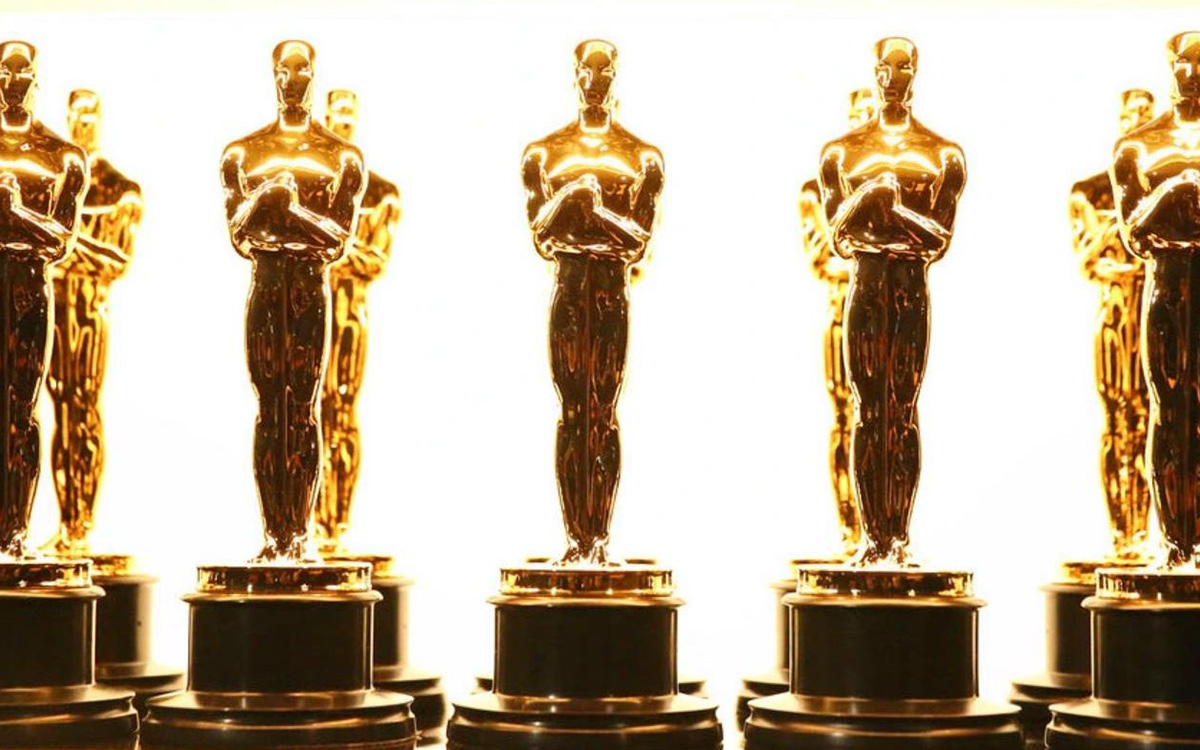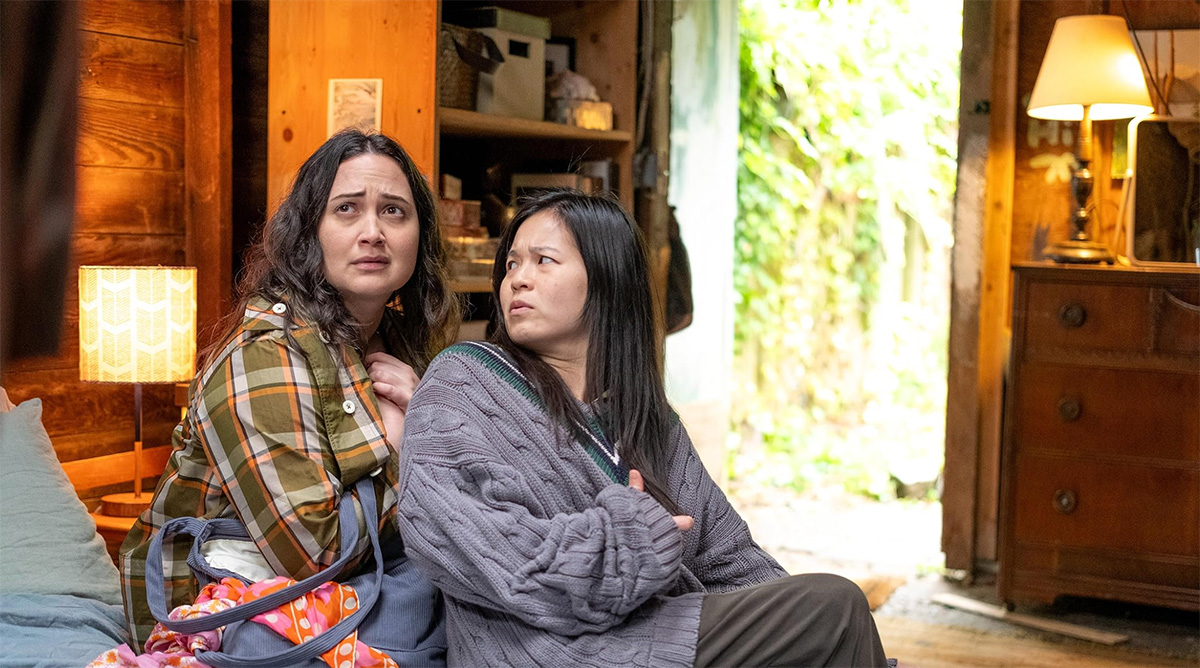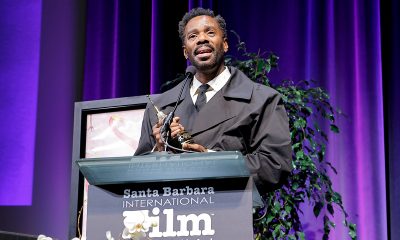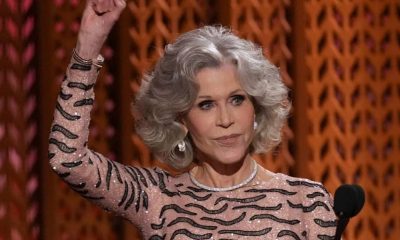Arts & Entertainment
The predictable predictability of the Oscars
Favoring middle-of-the-road prestige over edgier fare

It’s hard to write a reaction piece about the Oscars when you recognize that the Oscars, by their very nature, are essentially a poll – or perhaps, more aptly, a popularity contest – which reflects an aggregate of personal opinions, and therefore have as much to do with internal Hollywood politics as with rewarding artistic excellence.
I’m not saying that the movies and people being celebrated on the stage at the Dolby Theater in Hollywood Sunday night – all of them, winners and nominees alike – didn’t deserve to be there; on the contrary, 2023 was an outstanding year for cinema, and every one of the contenders could be considered worthy of taking the prize. If that’s the case, however, how can any of these outcomes be determined without the influence of personal taste? Making movies is not like playing sports, where a win results from the highest number of points scored and goals blocked; there is no such handily objective criteria to rely on in picking an actor, a screenwriter, or an entire film to proclaim as the “best” in its respective category, and it’s inevitable that Academy voters will be influenced by personal bias when they make their choices on that final ballot.
While Sunday’s 96th annual Oscar ceremony, which offered the usual snubs and oversights and no real surprises, might have disappointed me or even occasionally sparked a glimmer of outrage, I cannot fairly say that any of the final results were “mistakes.” And though it may be oversimplifying things to say that being offended by the Academy’s final choices is akin to being angry that someone else’s favorite flavor of ice cream is chocolate when yours is salted caramel praline, it’s still enough to convince me that my “reaction” piece to the Academy Awards can really only ever be an “opinion” piece,
With that in mind, here we go.
The presentation itself was the usual blend of witty repartee (mostly provided with success by veteran Oscar host Jimmy Kimmel, though attempts at it from the various presenters ran the gamut from delightful to disastrous), musical performances (Billie Eilish and brother Finneas O’Connell’s rendition of “What Was I Made For?”, which went on to win the evening’s only award for “Barbie”, was a particular highlight, alongside the more lavish and deliciously amusing dance production number headed by Supporting Actor nominee Ryan Gosling for “I’m Just Ken” from the same film), uplifting moments (a regal Rita Moreno’s benedictory introduction of “Barbie” Supporting Actress nominee America Ferrera brought tears to my eyes, and I suspect I wasn’t alone), and show-stopping surprises (John Cena’s teasingly faux nudity presenting the Best Costume Design award was a memorable stunt, to put it mildly, as was the combination of Arnold Schwarzenegger and Danny DeVito to do the honors in the Visual Effects and Film Editing categories) – yet it also had more than its fair share of embarrassing gaffes, such as upstaging the “In Memoriam” segment with an overblown production number accompanied by father-and-son operatic crooners Andrea and Matteo Bocelli’s duet of “Con tu partirò”, a move that has fueled perhaps more post-Oscars outrage than anything else from this year’s ceremony.
As for the politics, there were the expected barbs making fun of easy conservative targets, but most of the speeches avoided invoking too much progressive fury. The one overtly political moment came with the win of UK director Jonathan Glazer’s “The Zone of Interest” for Best International Feature, when he read, in prayerlike monotone, a pre-prepared statement warning against the dehumanizing hate depicted in his slice-of-Nazi-life historical drama and calling for empathy for the targets of such hate on both sides of the current crisis in Gaza. It was met with backlash, of course, especially after a partial quote in Variety omitted key elements of the speech and led many to believe the Jewish filmmaker was refuting his own religion.
As for the winners of the awards themselves (you can find the full list on the Oscar website) the evening’s choices fell more or less in line with my predictions – though not necessarily my preferences.
The domination of “Oppenheimer” in most of the major categories in which it competed was, for anyone following the pre-ceremony buzz, a foregone conclusion. Few doubted that Cillian Murphy would handily claim the Best Actor prize – thwarting nominee Colman Domingo (“Rustin”) from becoming the first queer actor to win for playing a queer character in the process – or that Christopher Nolan would take the Best Director category, and from there the win for Best Picture felt as inevitable as anything can be at the Oscars.
Equally inevitable was the evening’s most easily predicted “Oppenheimer” win, as veteran Hollywood player Robert Downey, Jr. ebulliently swaggered onstage amid the enthusiastic familial cheers of his peers to claim the Best Supporting Actor prize; his acceptance speech, in which he self-deprecatingly recalled the legal and professional obstacles arising from the substance abuse that nearly derailed his early career, became a testament to overcoming personal setbacks to achieve an even higher success, something that resonated in the words of several other of the evening’s winners.
In the categories where “Oppenheimer” didn’t win, the odds were already in favor of the eventual victors, such as first-time filmmaker Cord Jefferson, whose “American Fiction” earned him the Best Adapted Screenplay Award over fellow front runners like “Barbie” and “Poor Things,” and Da’Vine Joy Randolph, whose winning Supporting Actress turn in “The Holdovers” had been a juggernaut throughout the award season.
Many Oscar fans, though most accepted the predestination of “Oppenheimer” as the year’s big winner, might rather have seen a different candidate come out on top (my own choice, for what it’s worth, would have been “Barbie,” with “Poor Things” and “Zone of Interest” coming up close behind); but even if Nolan’s weighty and technically dazzling biopic was unquestionably a fine film, exploring a deeply disturbing slice of not-too-distant history that still casts a long existential shadow over our world today, it’s impossible for me not to see in its multiple wins an all-too-familiar pattern of “safe” choices.
While “Oppenheimer” might pique ethical discussions over its title character’s choice to build the atomic bomb, few would find controversy in the idea that the destruction unleashed on the world by that choice is a reason for concern. Its most viable competitors, “Barbie” and “Poor Things” – both of which touched on many of the same existential themes, albeit from a markedly different direction and in a more absurdist style – each stirred divisive opinions around (among other things) a perceived feminist agenda; other highly-acclaimed titles in the running, like the non-English language entries “Zone”, “Past Lives”, and “Anatomy of a Fall”, fell outside the comfortable domestic audience mainstream where Oscar’s favorite picks are usually a little too deeply-rooted to allow much opportunity for a dark horse upset. While not many expected Bradley Cooper’s ambitious Bernstein biopic “Maestro” to take home any awards, it was considerably more noteworthy that Martin Scorsese’s “Killers of the Flower Moon,” nominated for 10 Awards and widely lauded as one of the year’s most essential films, failed to score a single one of them – though I can’t help also noting that it deals with one of most shameful threads in our American past, inevitably making it a controversial movie for an era marked by deeply divided ideologies around that subject.
It’s perhaps for that reason that “Flower Moon” was not considered a front runner in most of its categories, but there was one in which it was seen as a heavy favorite. With Lily Gladstone poised to become the first Indigenous performer to win the Best Actress trophy, the odds leading up to Sunday’s presentation seemed to position them as the front runner; in the end, however, it was Emma Stone’s tour-de-force in “Poor Things” – in which she appeared in virtually every scene, in contrast to Gladstone’s relatively limited screen – that took it instead. Though it wasn’t quite a surprise, given the number of wins Stone has garnered already for the film, which also took home the prizes for Best Makeup and Hairstyling and Best Production Design, it nevertheless felt – to me, at least – like another example of Oscar’s predictable reluctance to court controversy with its choices.
Ironically, but not surprisingly, this conservative approach often just ends up causing a controversy of its own, and this case is no exception. Though I had championed Stone’s brilliant performance as the obvious winner, when her name was announced I found myself feeling disappointment over Goldstone’s loss, even as I was thrilled for Stone’s well-earned victory. After all, in a contest where the outcome is entirely subjective, Academy voters could have chosen to amplify the excellence of someone from within a marginalized community. Stone, who seemed as surprised at her win as anyone else, did remarkable work, but so did Gladstone; though it truly is “an honor just to be nominated,” it was an opportunity for Oscar to take a step toward correcting a long-ignored injustice at a time when doing so could make a demonstrably constructive impact on our culture and our society at a time when doing so would have a tremendous cultural impact, and it didn’t happen. It was a moment that struck me with an odd sense of disappointment even as I cheered for Stone; a bit of the sour within the sweet.
That, aside from a sense of missed opportunity over the evening’s consistent pattern of favoring the middle-of-the-road prestige represented by “Oppenheimer” over the edgier, more confrontational material presented by some of the other titles on the slate, was my biggest takeaway from the Academy Awards. Though I can’t say that any of the winners were unworthy, I can’t help thinking that their victories were somewhat tainted by the virtual shutout of “Barbie”, (which still feels to me like a message for female filmmakers to “stay in their lane”) and relatively low showing for “Poor Things” (which took only 3 of the 11 awards for which it was nominated), and that their underappreciation for such films was for me proof that many of the professionals working within the industry are afraid of material that pushes the medium too far outside its traditional boundaries, that dares to imagine stories and ideas which give voice to “outsider” concerns beyond the level of lip service, or that stretches the accepted limits of narrative entertainment.
More concerning, perhaps, is the minimal change that has come in the wake of the Academy’s much-publicized retooling to promote greater diversity and inclusion among the nominees. While it’s heartening to see people of color and queer people being brought into the mix more consistently than ever before, it’s also all the more painful when we see them passed over or relegated to the status of “also ran” most of the time. As a queer writer working for a queer publication, it’s impossible for me not to be impatient when films with strong LGBTQ content are lauded alongside mainstream titles only to consistently be passed over when it comes to the final victory. While queer subject matter, in varying degrees, was part of movies like “Rustin”, “Nyad”, and even “Barbie,” only two wins in the “major” categories went to films that included significant queer themes – “American Fiction” and “Anatomy of a Fall”, both of which won for their screenplays.
And while it’s now old news, the Academy’s complete omission of Andrew Haigh’s melancholy gay ghost story “All of Us Strangers,” a queer UK film overwhelmingly embraced by other major awards bodies across the world and in America itself and considered a major contender before failing to earn a single Oscar nomination, and female filmmaker Emerald Fennell’s “Saltburn,” which hinged – at least ostensibly – on a queer attraction between stars Barry Keoghan and Jacob Elordi, speaks volumes about the comfort level surrounding queer content within mainstream Hollywood. Even “May December,” a high-profile film directed by queer indie pioneer Todd Haynes but featuring only presumably heterosexual characters, received only a single nod (for Best Original Screenplay) for “May December,” despite being widely considered a front-runner for several acting awards. While inclusivity doesn’t mean considering every queer-relevant movie a shoo-in for the competition, it’s telling when the Academy all but ignores queer titles that have been contenders and even winners at all the other major film award ceremonies, and frankly, it’s extremely annoying. While I can’t speak for women, those in the Black community, or other groups with a history of being dismissed by Oscar, I can only assume that their sentiments must resemble my own.
Yet as I reach the end of my observations about the latest installment of the Academy Awards, I find myself falling short of blaming the Academy itself, at least as an organization. While it has had a problematic history of dragging its feet when it comes to evolving toward a more all-embracing approach to bestowing honors, undeniable progress has been made. That this progress is infuriatingly slow is less a reflection on the awards than it is on Hollywood as a whole; after all, despite Academy efforts to ensure greater diversity among its nominees, it’s the individual choices of its voters that determines the final results – and if those results fail to accomplish more than the occasional token victory for the non-white-heterosexual contenders, it’s a symptom of the fact that those voices are underrepresented within the industry at large.
If we want to see an Academy Awards ceremony that truly accomplishes the kind of all-inclusive spirit for which it has so palpable a potential, we must continue to pressure the Hollywood industry at large to build a more diverse and inclusive creative environment. Otherwise, no matter how much they promise to do better, they will always fall short.
Books
‘Pronoun Trouble’ reminds us that punctuation matters
‘They’ has been a shape-shifter for more than 700 years

‘Pronoun Trouble’
By John McWhorter
c.2025, Avery
$28/240 pages
Punctuation matters.
It’s tempting to skip a period at the end of a sentence Tempting to overuse exclamation points!!! very tempting to MeSs with capital letters. Dont use apostrophes. Ask a question and ignore the proper punctuation commas or question marks because seriously who cares. So guess what? Someone does, punctuation really matters, and as you’ll see in “Pronoun Trouble” by John McWhorter, so do other parts of our language.

Conversation is an odd thing. It’s spontaneous, it ebbs and flows, and it’s often inferred. Take, for instance, if you talk about him. Chances are, everyone in the conversation knows who him is. Or he. That guy there.
That’s the handy part about pronouns. Says McWhorter, pronouns “function as shorthand” for whomever we’re discussing or referring to. They’re “part of our hardwiring,” they’re found in all languages, and they’ve been around for centuries.
And, yes, pronouns are fluid.
For example, there’s the first-person pronoun, I as in me and there we go again. The singular I solely affects what comes afterward. You say “he-she IS,” and “they-you ARE” but I am. From “Black English,” I has also morphed into the perfectly acceptable Ima, shorthand for “I am going to.” Mind blown.
If you love Shakespeare, you may’ve noticed that he uses both thou and you in his plays. The former was once left to commoners and lower classes, while the latter was for people of high status or less formal situations. From you, we get y’all, yeet, ya, you-uns, and yinz. We also get “you guys,” which may have nothing to do with guys.
We and us are warmer in tone because of the inclusion implied. She is often casually used to imply cars, boats, and – warmly or not – gay men, in certain settings. It “lacks personhood,” and to use it in reference to a human is “barbarity.”
And yes, though it can sometimes be confusing to modern speakers, the singular word “they” has been a “shape-shifter” for more than 700 years.
Your high school English teacher would be proud of you, if you pick up “Pronoun Trouble.” Sadly, though, you might need her again to make sense of big parts of this book: What you’ll find here is a delightful romp through language, but it’s also very erudite.
Author John McWhorter invites readers along to conjugate verbs, and doing so will take you back to ancient literature, on a fascinating journey that’s perfect for word nerds and anyone who loves language. You’ll likely find a bit of controversy here or there on various entries, but you’ll also find humor and pop culture, an explanation for why zie never took off, and assurance that the whole flap over strictly-gendered pronouns is nothing but overblown protestation. Readers who have opinions will like that.
Still, if you just want the pronoun you want, a little between-the-lines looking is necessary here, so beware. “Pronoun Trouble” is perfect for linguists, writers, and those who love to play with words but for most readers, it’s a different kind of book, period.
The Blade may receive commissions from qualifying purchases made via this post.

Friday, April 18
“Center Aging Friday Tea Time” will be at 2 p.m. on Zoom. This is a social hour for older LGBTQ+ adults. Guests are encouraged to bring a beverage of choice. For more details, email [email protected].
Go Gay DC will host “LGBTQ+ Community Social in the City” at 7 p.m. at Hotel Zena. This event is ideal for making new friends, professional networking, idea-sharing, and community building. This event is free and more details are available on Eventbrite.
Trans and Genderqueer Game Night will be at 6 p.m. at the DC Center for the LGBT Community. This will be a relaxing, laid-back evening of games and fun. All are welcome and there’ll be card and board games on hand. Feel free to bring your own games to share. For more details, visit the DC Center’s website.
Saturday, April 19
Go Gay DC will host “LGBTQ+ Community Brunch” at 11 a.m. at Freddie’s Beach Bar & Restaurant. This fun weekly event brings the DMV area LGBTQ+ community, including Allies, together for delicious food and conversation. Attendance is free and more details are available on Eventbrite.
LGBTQ People of Color Support Group will be at 7 p.m. on Zoom. This peer support group is an outlet for LGBTQ People of Color to come together and talk about anything affecting them in a space that strives to be safe and judgement free. There are all sorts of activities like watching movies, poetry events, storytelling, and just hanging out with others. For more information and events for LGBTQ People of Color, visit thedccenter.org/poc or facebook.com/centerpoc.
“Spark Sapphic Social” will be at 8 p.m. at Spark Social House. This weekly sapphic social is an opportunity to mix and mingle with other sapphics in D.C.’s newest LGBTQ bar. This event is free and more details are available on Eventbrite.
“DC Drag Brunch on Rooftop – Penthouse (Formerly at Lima Twist)” will be at 12 p.m. at Baby Shank Rooftop. Hosted by Miss Capital Pride, this is the ultimate drag brunch experience in Washington, D.C., featuring the fiercest queens around. Prepare to be entertained by glamorous drag queens and celebrated celebrity impersonators, including Taylor Swift, Lady Gaga, Beyoncé, Britney Spears, Nicki Minaj, Ariana Grande, Whitney Houston, Cher and many more. Tickets cost $27 and are available on Eventbrite.
Sunday, April 20
Queer Crayon Club will host “Queer Sketch Social” at 3 p.m. at Sinners and Saints. This is a fun event for LGBTQ+ adults to come together and color. Attendance is free and more details are available on Eventbrite.
Monday, April 21
“Center Aging Monday Coffee & Conversation” will be at 10 a.m. on Zoom. This is a social hour for older LGBTQ+ adults. Guests are encouraged to bring a beverage of choice. For more details, email [email protected].
Tuesday, April 22
Genderqueer DC will be at 7 p.m. on Zoom. This support group is for people who identify outside of the gender binary. Whether you’re bigender, agender, genderfluid, or just know that you’re not 100% cis – this is your group. For more details, visit www.genderqueerdc.org or Facebook.
Coming Out Discussion Group will be at 7 p.m. on Zoom. This is a peer-facilitated discussion group and a safe space to share experiences about coming out and discuss topics as it relates to doing so. For more details, visit the group’s Facebook.
Wednesday, April 23
Job Club will be at 6 p.m. on Zoom. This is a weekly job support program to help job entrants and seekers, including the long-term unemployed, improve self-confidence, motivation, resilience and productivity for effective job searches and networking — allowing participants to move away from being merely “applicants” toward being “candidates.” For more information, email [email protected] or visit thedccenter.org/careers.
Asexual and Aromantic Discussion Group will be at 7 p.m. on Zoom. This is a space where people who are questioning this aspect of their identity or those who identify as asexual and/or aromantic can come together, share stories and experiences, and discuss various topics. For more details, email [email protected].
Thursday, April 24
Virtual Yoga with Sarah M. will be at 7 p.m. on Zoom. This is a free weekly class focusing on yoga, breath work, and meditation. For more details, visit the DC Center for the LGBT Community’s website.
DC Anti-Violence Project Open Meeting will be at 7 p.m. on Zoom. This meeting is open to anyone interested in learning more and getting involved in lessening violence both within and directed towards the LGBT communities. For more information, visit Facebook or Twitter.
Movies
Heartfelt ‘Wedding Banquet’ remake a romcom worth seeing
Mishaps, crossed wires, conflicts are all part of the fun

Creating a worthy remake can be a tricky proposition, especially when the movie being remade is a beloved classic – but that doesn’t mean it’s an impossible one.
Consider Andrew Ahn’s new version of 1993’s “The Wedding Banquet,” a film that put future “Brokeback Mountain” director Ang Lee on the proverbial map in America, which opens in theaters this weekend after a debut at Sundance earlier this year. The original, an American/Taiwanese production which became a surprise hit in the U.S., broke ground with its story — a culture-clash comedy of manners about a queer romantic triangle attempting to stage a sham wedding, it was quickly embraced by LGBTQ audiences thrilled to see representation on the big screen and positive representation, at that, in an era when it was even scarcer than it is today. To undertake a remake of such a film is a bold move, to say the least.
Yet gay Korean American writer/director Ahn (“Spa Night,” “Fire Island”) – has built his blossoming career on films about queer relationships among Asian American characters, with as much (or more) emphasis on family, both biological and chosen, as on romantic partnership; It seems natural, perhaps, for him to reinterpret this influential classic through his own lens, and he’s already proven himself as a filmmaker whose strengths line up perfectly with the material.
Even so, Ahn hedges his bets, perhaps, by collaborating on the new screenplay with James Schamus, who also co-wrote the original (along with Lee and Neil Peng), and the result is a movie that – although it recrafts the original romcom for a newer age and reconfigures its central relationships a bit to “up the ante” on its complications – stays relatively faithful to the broad strokes of its plot.
In this iteration, the New York setting is transposed to Seattle, and the plot revolves around not just one queer romance, but two: Chris and Min (Bowen Yang and Han Gi-Chan), a stalled grad student and his South Korean boyfriend, and their lesbian friends-and-landladies Lee and Angela (Lily Gladstone and Kelly Marie Tran), who are struggling to become parents through expensive IVF treatments. Min, an artist whose temporary visa is about to expire, wants to stay with Chris and build a life in America, but his grandmother (Youn Yuh-jung) – currently running the vast family business empire to which he is heir – wants him to come home and claim his place in the organization. A wedding to Chris would secure him the green card he needs to defy his grandmother’s demands, but it would also mean outing himself as gay and potentially being cut off from his inheritance. As a solution, he offers to pay for Lee and Angela’s fertilization procedure in exchange for a “green card wedding” with the latter, ensuring that he can remain in the U.S. while also remaining in the closet to his family.
Of course it’s an idea as bad as it sounds, but despite some reticence, the couples agree to the plan; but when grandmother decides to come to America and meet the bride in person, the four of them must attempt to pull off a masquerade that escalates far beyond their expectations after she insists on putting on a traditional – and elaborate – Korean wedding worthy of her grandson’s exalted status, all while wrestling with the ambivalence and doubts that begin to encroach on their relationships as the scheme begins to fray at the edges.
Those who’ve seen the original already know that things don’t play out exactly as planned – and anyone who hasn’t won’t be surprised when it doesn’t, anyway. We already told you it was a bad idea.
That, of course, is the charm of the romcom, a genre in which mishaps, crossed wires and conflicts are all part of the fun, and in any case it gives Ahn’s film the opportunity to explore – as Lee did with the original – the more serious and relatable challenges of reconciling our queerness with the deeply ingrained traditions of our cultural background; he does so with gentle wit and an equal measure of respect, but he’s not above getting laughs by pointing up the sheer absurdity that sometimes goes along with the process. Neither does he hesitate to delve into the messiness of queer relationships, even (and perhaps especially) with lifelong friends, or the deep insecurities and self-criticisms which get in the way of sorting them out.
To these ends, “Wedding Banquet” relies heavily on its cast, who embrace and clearly relish the chance to flesh out these characters. Yang brings his inevitable “SNL” star power to the table but downplays the wackiness in favor of a more nuanced tone, and Gi-Chan shines as his pragmatically idealistic partner; Gladstone’s intelligence and authenticity is a grounding force, while Tran counterpoints her with an eminently likable turn as her spunky-but-anxious misfit of a girlfriend – and the resonance they each bring to the prospect of motherhood highlights the longing for family and legacy that so many queer couples carry as they build their lives together.
It’s not all about the couples, though. Veteran Chinese American actress Joan Chen (“Tai Pan,” “Twin Peaks”) is a scene stealer as Angela’s hyper-supportive mom, whose participation in her daughter’s “lavender wedding” requires her to go against her deepest instincts as a proud ally, and Bobo Le provides a further connection to the theme of family with a charming performance as Yang’s tomboy-ish little sister. The anchoring performance, however, comes from acclaimed Korean star Yuh-jong, whose shrewd, savvy, and staunch portrayal of Gi-Chan’s power player grandma adds a much-needed dose of level-headed wisdom into the midst of the whirlwind.
In the end, Ahn’s update of Lee’s classic comedy scores big points for honoring the original’s message of acceptance and embracing the notion of reimagining our ideas of traditional family structures to meet the needs of an ever-changing world; it also succeeds in maintaining a heartfelt sense of empathy for each of its characters, all of whom appeal to us precisely because of their imperfections and their hangups. None of them are perfect, but all of them are perfectly human, which goes a long way toward making Ahn’s remake feel like more than just the slickly-made feel-good romcom it resembles.
And yet, given the screwball potential and the endless possibilities for farcical developments in the convoluted deception attempted by its sets of lovers, Ahn’s “Wedding Banquet” could have been funnier. Leaning into an idealized and sentimental perspective as it gracefully brings its characters’ lives into place, it occasionally feels a bit “precious,” too “Hollywood” to be believed.
Again, however, this is part of the charm of the romcom: if generations of straight audiences have gotten the chance to buy into idealized big screen fantasies about life and love, then why shouldn’t we enjoy the same privilege?
With that in mind, “The Wedding Banquet” makes for a perfect opportunity to entertain and validate ourselves – and even if it doesn’t tickle your funny bone, it’s a generous enough feast for your queer soul that it deserves you to see it.
Just make sure you bring somebody special to share your popcorn with.
-

 El Salvador4 days ago
El Salvador4 days agoGay Venezuelan makeup artist remains in El Salvador mega prison
-

 State Department3 days ago
State Department3 days agoHIV/AIDS activists protest at State Department, demand full PEPFAR funding restoration
-

 Maryland5 days ago
Maryland5 days agoMd. schools plan to comply with federal DEI demands
-

 Brazil3 days ago
Brazil3 days agoUS lists transgender Brazilian congresswoman’s gender as ‘male’ on visa












